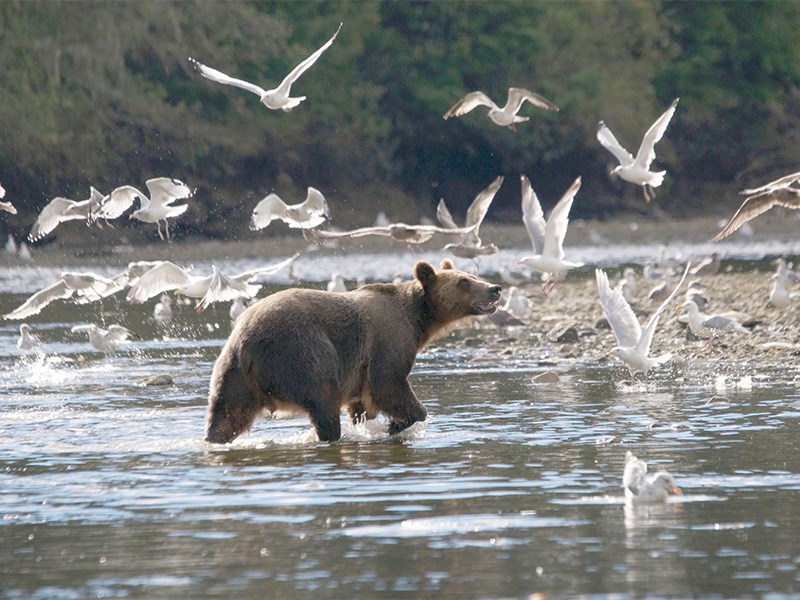A recently announced ban on trophy hunting for grizzly bears, effective November 30, will not significantly affect bears in the region, according to a University of Victoria conservation scientist.
City of Powell River is within Region 2 of BC Ministry of Forests, Lands and Natural Resource Operations’ Fish and Wildlife Branch, making the region’s backcountry grizzly bears members of the Toba/Bute population unit.
According to UVIC interdisciplinary conservation scientist Chris Darimont, the area was already protected before the government announced the ban.
“Its population level is so low it can no longer tolerate a hunt,” he added.
Darimont said Powell River region borders two other threatened grizzly bear populations in the Squamish-Lillooet and South Chilcotin regions.
When the new BC government announced the province-wide grizzly trophy hunt ban on August 14, the decision was met with widespread approval.
According to Darimont, the move finally aligns government policy with societal values.
“I don't think the ban is about sustaining a population,” said Darimont. “The ban was designed to align with the collective moral compass of BC.”
Grizzly bear sightings in Powell River area are not nearly as common as those involving black bears, but the powerful predators are out there. Reports of grizzly sightings usually come from Goat Main, Powell Forest Canoe Route and Eldred Valley backcountry areas.
Terracentric Coastal Adventures co-owner Hugh Prichard, who has been a regular visitor to areas around Goat Main and the canoe route over the last decade, saw a lone grizzly bear earlier this summer. Prichard was inside of his vehicle at the time; the bear was about 100 yards away, he said.
“We've often heard of grizzlies in the zone of the canoe route,” said Prichard. “Not having seen grizzlies in the 10 years before, it was definitely a surprise.”
Outdoor enthusiasts and city residents see black bears regularly in the backcountry, or even within city limits. Grizzly bear sightings, however, while not uncommon in forested regions, generally do not occur close to residential areas.
Last July, Stillwater resident Tristan May shot a grizzly bear that was attacking his livestock.
BC Conservation Officer Service officer Gerry Lister said he has had more than one experience dealing with a grizzly bear in a residential area.
“In 2010, we had a grizzly bear come right into town,” said Lister. “It showed up at Mowat Bay and then walked through Cranberry, down the hill and into Townsite.”
After Lister trapped the bear, it was relocated to Homfray Channel.
Tour operators in BC could benefit from the trophy ban, said Darimont.
Visitors have been coming to the Powell River area for opportunities associated with wildlife sightings, including grizzly bears.
Some local ecotourism companies offer excursions to Toba Inlet where grizzlies are typically found, particularly in fall when salmon are running.
“In areas where ecotourism for bears is common on the coast, hunting and tourism cannot coexist,” said Darimont. “The latter makes much more money and employs more people than hunting.”



